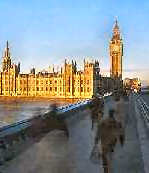 Earlier this month, the the House of Commons’ Quadripartite Committee released a report entitled Strategic Export Controls: 2007 Review. In the report, the Committee recommends that the U.K. adopt a broker registration system that is interesting both in itself and in comparison to the current treatment of brokers in the United States under the provisions of Part 129:
Earlier this month, the the House of Commons’ Quadripartite Committee released a report entitled Strategic Export Controls: 2007 Review. In the report, the Committee recommends that the U.K. adopt a broker registration system that is interesting both in itself and in comparison to the current treatment of brokers in the United States under the provisions of Part 129:
We accept that the EU Council Common Position on the control of arms brokering, adopted on 23 June 2003, does not call for the registration of arms brokers. Article 4 suggests that Member States “may†establish a register of arms brokers, and that “registration or authorisation to act as a broker would […] not replace the requirement to obtain the necessary licence or written authorisation for each transactionâ€. We conclude that the EU Common Position on the control of arms brokering sets the best practice and we recommend that the Government follow best practice to establish a register of arms brokers. We conclude that a register will help to ensure that brokers meet defined standards, requirements and checks as well as deterring those—for example, with a relevant criminal conviction—for applying for registration. We also recommend that any brokering or trafficking in arms by a person in the UK or a British citizen abroad who is not registered be made a criminal offence.
The report doesn’t address, or even seem aware of, the difficulty of defining what activities in connection with the sale of a defense article constitute brokering. But leaving aside that question, it approaches the registration issue in ways that are significantly different from Part 129.
First, under Part 129, the registration process is purely informational. There is no endorsement by the DDTC when it issues a registration number that it has made a determination that the registrant is indeed qualified to act as a broker. The Committee’s proposal, however, clearly contemplates the enforcement of certain standards, including background checks, that more closely resemble a professional licensing system.
Second, the U.K. proposal relating to brokers requires registration only. There is no suggestion that broker participation in particular transactions may require specific licenses as is the case under Part 129 of the ITAR.
Third, one of the most significant controversies relating to Part 129 has been its jurisdictional scope. Part 129 requires registration by brokers “otherwise subject to” U.S. jurisdiction. The question here has been whether “otherwise subject to U.S. jurisdiction” covers brokers who are outside the United States, have no contacts with the United States and are not U.S. citizens but who are engaged in brokering with respect to U.S. origin defense articles. The U.K proposal applies only to British citizens engaging in brokering in the United Kingdom and throughout the world and to citizens of other countries engaging in brokering in the United Kingdom. It does not apply to parties that are not British citizens and are brokering outside the United Kingdom.
 Permalink
Permalink
Copyright © 2007 Clif Burns. All Rights Reserved.
(No republication, syndication or use permitted without my consent.)

 Posted by
Posted by  Category:
Category: 

